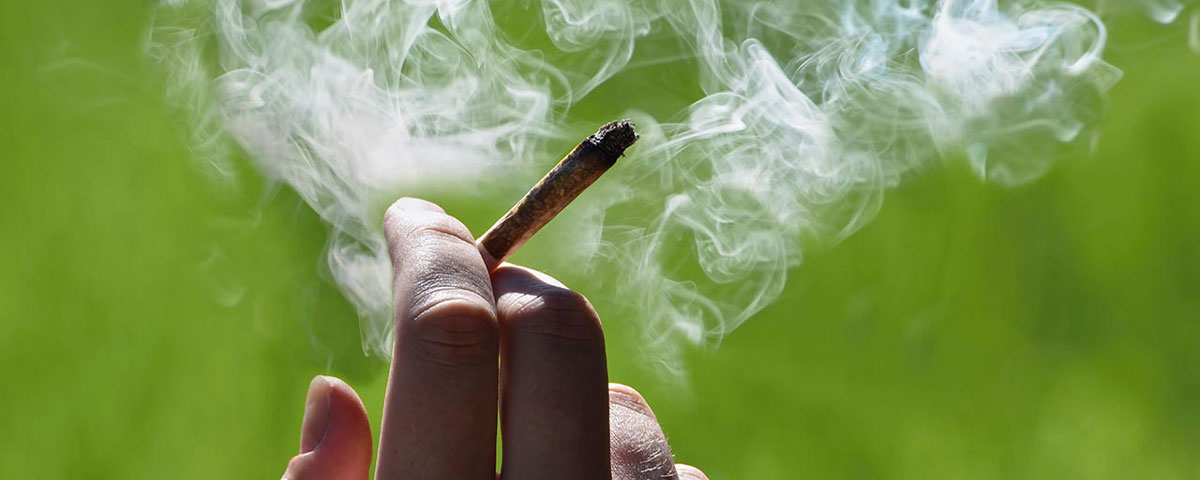Many studies have focused on how marijuana affects lung health and the long-term effects it can have.
Following the legalization and decriminalization of weed in certain states, lots of people have taken to smoking cannabis in hopes of experiencing some physical benefits; however, if you’ve developed the habit of smoking weed, then you may be at serious risk of experiencing issues with your lung health. So in exactly what ways does weed affect your lungs? Banyan Treatment Centers Chicago delves deeper into this phenomenon and the dangers it poses.
What’s in Marijuana Smoke?
Marijuana, also known as weed or cannabis, is a mixture of dried flowers from the Cannabis sativa and Cannabis indica plants. The active chemical component in cannabis is tetrahydrocannabinol (THC), which is responsible for producing psychological side effects in smokers. While weed can be ingested in a variety of ways, the most common method is smoking it in blunts, joints, bongs, or pipes. Like tobacco, marijuana affects your lungs and can be attributed to its chemical properties.
When comparing marijuana vs. tobacco, it was discovered that weed actually contains the same toxins and carcinogens as tobacco, including ammonia, hydrogen cyanide, and polycyclic aromatic hydrocarbons. The smoking method you use also contributes to how marijuana affects your lungs. When smokers use bongs or vapes, for example, they may also be inhaling water, adding moisture to the lungs that can worsen side effects.
Can You Get Addicted to Marijuana?
Despite what many believe, weed can be addictive, and many people have found themselves struggling to quit. What happens to your lungs after smoking weed is only one of the many repercussions of this drug habit. In addition to the potential lung damage brought on by pot smoking, regular marijuana usage can have many detrimental impacts on physical and mental health. Regular marijuana use can harm cognitive abilities, including memory and attention span. Additionally, it could cause an elevated heart rate, respiratory problems, and lung infections. People who become physically dependent may also experience marijuana withdrawal symptoms like agitation, restlessness, loss of appetite, and anxiety when trying to stop.
If you or someone you know has this issue, Banyan Chicago offers a partial hospitalization program that can help. The PHP at our Illinois drug rehab allows patients to heal from their addiction while learning how to incorporate what they learn into their daily lives. It recognizes the significance of addressing both the physical and psychological components of addiction and provides all-encompassing support and care.
Our approach combines medical care, therapy, and counseling to assist patients in overcoming their addiction and creating better-coping strategies. We enable people to overcome addiction while giving them the tools they need to maintain sobriety in their daily life by offering an organized and encouraging environment.
How Does Weed Affect Your Lungs?
In addition to these harmful chemicals, marijuana smokers also tend to inhale more deeply and hold smoke longer in their lungs to experience a stronger high. Because of these carcinogens and smoking methods, marijuana’s effects on the lungs can cause permanent respiratory problems. Marijuana smoke can irritate the lungs and cause coughing, wheezing, and a feeling of tightness in the chest.
The most common effects of smoking weed on the lungs include:
- Bronchitis
- Coughing
- Wheezing
- Chest tightness
- Lung irritation
- Irritation of the airways
- Burnt mouth or throat
- Phlegm
- Trouble breathing
So, can weed affect your lungs? The simple answer is yes. Heavy weed smokers run the risk of developing asthma, cystic fibrosis, and lung cancer. The effects of smoking marijuana on the lungs also include the formation of large air sacs called bullae. Bullae can make breathing difficult and can cause a collapsed lung if it ruptures. Cannabis can also worsen symptoms in people with pre-existing lung conditions. In fact, a person may not even need to smoke the substance themselves to feel the damaging physical effects.
The Dangers of Second-Hand Marijuana Smoke
Second-hand marijuana smoke poses similar health concerns to second-hand tobacco smoke. The second-hand smoke released by those who smoke or consume marijuana close to others can be harmful to the health of others nearby.
Exposure to second-hand marijuana smoke can harm one's mental health in addition to causing equivalent harm to the lungs. Tetrahydrocannabinol (THC), the psychoactive component in marijuana, may be absorbed by people through second-hand smoke, according to research. Cognitive skills, memory, and attention span may be compromised as a result. Additionally, exposure to second-hand marijuana smoke may cause those with pre-existing mental health issues to become more anxious or paranoid.
It is critical to establish smoke-free spaces and raise public knowledge of the risks posed by marijuana smoke inhalation. We can lessen the harmful effects of second-hand marijuana smoke on people and communities by putting policies in place that shield non-smokers from exposure and educating the general public about the potential health hazards.
As a Chicago addiction treatment center, we’re well aware of how marijuana affects your lungs and overall health. If you or a loved one are unable to quit using marijuana or any other substance, 888-280-4763 to learn which of our Illinois addiction treatment levels of care is best for you.
Source:
Related Reading









